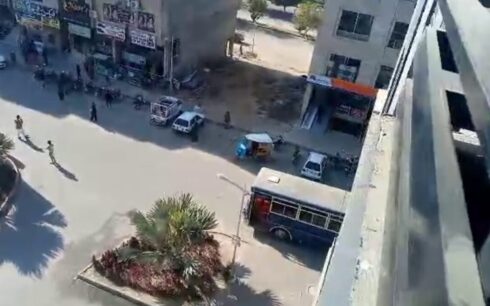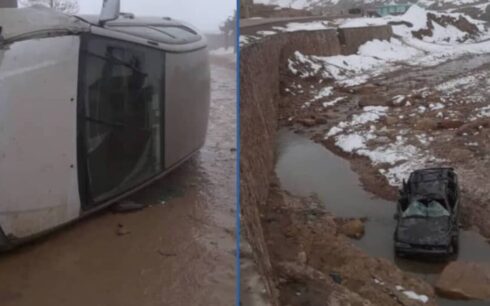KABUL, Afghanistan — The Taliban’s Ministry of Education announced on Monday the start of construction on a madrasa and nine schools in the southeastern province of Paktika. The projects, funded at a cost of 80 million Afghanis ($1.1 million), are set to be completed within six months, according to the ministry.
The schools and madrasa are being built in the districts of Wazikhwa, Ormami, Tarwa, Barmal, and Shigin, officials said.
Since taking control of the country in 2021, the Taliban have prioritized constructing and rebuilding madrasas, or Islamic religious schools, across Afghanistan.
Moreover, girls above the sixth grade remain barred from attending school under Taliban rule, a restriction that has drawn widespread condemnation from international organizations.
According to findings from Amu TV, six madrasas were constructed or rebuilt in Kapisa, Farah, Badakhshan, Baghlan, Khost, and Ghazni provinces between October 20 and November 20, at a total cost of nearly 24 million Afghanis. The ministry recently inaugurated another madrasa in Sar-e-Pol province’s Kohistan district, a project valued at 1 million Afghanis.
A United Nations report released in September highlighted the centrality of Taliban-run madrasas in their governance strategy. These institutions, sometimes referred to as “jihadi madrasas,” can house up to 1,000 students and often serve as venues for speeches by senior Taliban leaders.
While the Taliban see these schools as crucial to their vision of Afghanistan’s educational system, critics warn of the potential risks. Heather Barr, Associate Director of the Women’s Rights Division at Human Rights Watch, expressed concerns about the curriculum and its possible role in promoting extremist ideologies.
Critics also note that the focus on religious schooling sidelines critical investments in broader educational development, potentially narrowing opportunities for Afghanistan’s youth in a globalized world.





